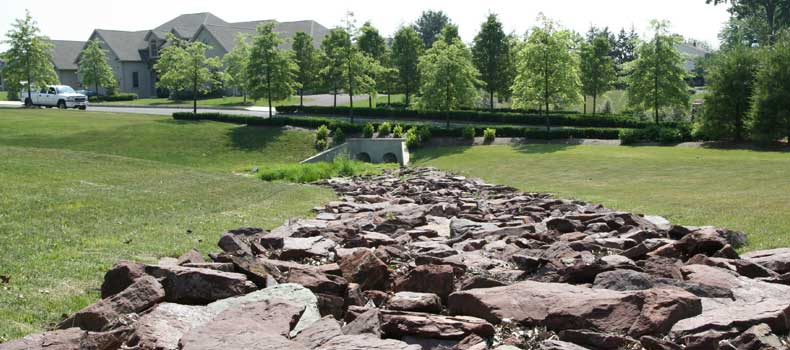For Engineers Week this year, Principal and Vice President of Engineering, Trevor Smith, looks back at his 25 year career in Engineering and Land Development:
I began my career as an Engineer in civil engineering and land development about 25 years ago. As it happens with careers, and life, this opened up new avenues and passions I didn’t realize would exist when I was at Penn State studying the foundations of engineering. My land development work led me to opportunities to invest in properties and land improvement projects. Much like a two sided coin, the combination of this work has had positive impacts upon my career in two major ways. As a land developer with a civil engineering background, I was able to approach new opportunities with an eye for what it would take to get a development idea to fruition. I wasn’t relying upon just intuition and the input of others, but my own experience in the land development process and knowledge of its challenges. As a civil engineer with firsthand experience in what it is like to be the land owner with your own money and interests at stake, I’ve gotten a much better understanding of my client’s needs. I take a more personal approach to our clients’ projects, as if I was the project owner, having personally experienced this work through their eyes. Through this dual career, I have learned a few things:
- Relationships are key. Knowing the decision makers (and their assistants) in municipalities is incredibly helpful in getting decisions made, and having a municipality work with you to find solutions to problems in the development process.
- Clear communication with the public and township planners is imperative. Their perception of a project can make or break your plans. You have to be very strategic in your approach to development so as to not ruin the trust you have established with both the public and the municipalities.
- Responsiveness goes hand in hand with communication. When given feedback and questions from the townships, a timely response and submittal of modified plans is necessary to maintain the cooperation of the township and to keep the project on schedule.
- In order to orchestrate a seamless project, it is crucial to be aware of the most current environmental regulations, especially in the areas of stormwater management and erosion and sediment control. Changes happen constantly. Many problems and delays can be avoided by being up to date on these regulations.
- Have an understanding of the processes and synergies between disciplines. Understanding how professionals such as soil scientists and environmental engineers operate and interrelate is helpful when trying to coordinate the needed services to complete a project.
- Most importantly, over my 25 year career the biggest lesson I have learned is there’s more than one way to achieve results. With the goal of accomplishing the most cost effective outcome, solutions can be found creatively.
I look back at my beginnings in engineering and I’m grateful for what it has opened up to me. Engineering is problem solving at its best, and it has enabled my career to grow in ways I would have never imagined back in my college days.




